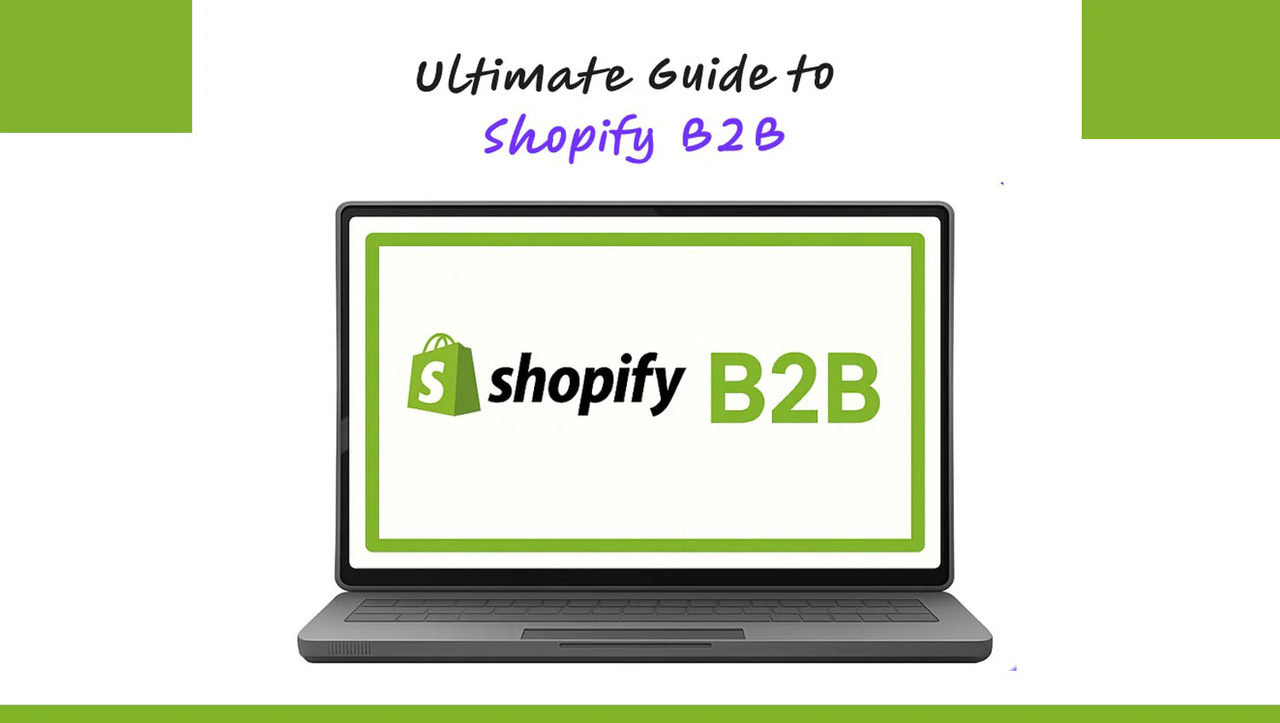Learn how to build and scale a Shopify B2B shop. Explore key features, best practices, and why Shopify Plus B2B is ideal for modern wholesale brands.
- The Rise of B2B Ecommerce and Why Shopify B2B Matters
The global B2B ecommerce market is rapidly growing, expected to surpass $20 trillion by 2027. Many brands that once relied on offline channels or manual sales are now moving online, seeking scalable solutions.Shopify B2B has emerged as one of the most popular options. Once known primarily for B2C stores, Shopify has expanded its platform to handle complex B2B workflows, offering advanced tools to help wholesalers, manufacturers, and distributors sell online effectively.
- What You Can Do With B2B on Shopify
If you’re considering running a B2B shop on Shopify, here are the core features to know:
| Feature | Why It’s Important |
| Custom Pricing & Price Lists | Offer company-specific or volume-based pricing. Crucial for wholesale operations. |
| Company Profiles & Buyer Roles | Structure accounts around companies, with multiple users, locations, and roles. |
| Payment Terms & Net Payments | Support for delayed payments and net terms (not just instant checkout). |
| Multi-location Inventory & Localization | Manage inventory by location and display local currencies/taxes. |
| Custom Checkout for B2B | Add purchase order fields, streamline large order checkouts, tailor UX for business buyers. |
| Self-Serve Portals | Let B2B buyers reorder, track orders, and manage company info themselves. |
These features are especially powerful when using Shopify Plus B2B, which unlocks advanced customizations and integrations.
- Shopify Plus B2B vs Standard Shopify Plans
Shopify’s regular plans can work for smaller wholesale stores, but for high-volume or complex operations, Shopify Plus B2B is a better choice.The legacy Wholesale Channel is being phased out, replaced by the built-in Shopify B2B suite that offers deeper functionality and better integration with the core Shopify admin.A key decision is whether to run a blended store (B2B + B2C together) or a dedicated Shopify B2B shop.
- Blended store → simpler operations but can be tricky with tax/pricing differences.
- Dedicated store → more control and customization but requires more management effort.
- Latest Shopify B2B Updates
Shopify keeps releasing new B2B features. The Winter 2024 Shopify Editions added:
- Granular customer and staff permissions
- Fulfillable inventory by location
- Improved POS support for B2B workflows
- Better analytics for company accounts
These improvements make B2B on Shopify more efficient and scalable than ever.
- Best Practices for Building a Shopify B2B Shop
Here’s how to get the most out of your Shopify B2B setup:
- Define Your B2B Strategy
Decide on buyer personas, pricing tiers, order volume, and whether you need a blended or dedicated store. - Integrate ERP and CRM Systems
Sync inventory, finance, and sales data to keep operations running smoothly. - Customize the B2B Buying Experience
Offer easy bulk ordering, personalized catalogs, and clear account dashboards for business buyers. - Roll Out in Phases
Start with pilot customers, gather feedback, and gradually scale. - Track B2B Metrics
Monitor reorder frequency, CLV, payment delays, and order fulfillment times.
- Pros and Cons of Shopify B2B
Pros
- Fast launch, easy scalability
- Powerful self-serve tools for buyers
- Global reach with multi-currency/tax/localization
- Rich ecosystem of B2B-focused apps
Cons
- Shopify Plus costs more than standard plans
- Some checkout customizations require developer work
- Complex tax requirements may push you toward separate B2B stores
- Is Shopify B2B Right for You?
If you’re ready to move your wholesale or manufacturing business online, Shopify B2B (especially with Shopify Plus B2B) can be a powerful platform to build your Shopify B2B shop.It offers the infrastructure to scale globally, serve business buyers efficiently, and centralize your B2B and B2C operations under one system. With the right setup, B2B on Shopify can become a major growth engine for your brand.


